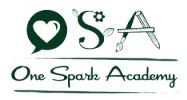
“An education filled with rigor but absent inspiration is meaningless, even damaging. But, an inspired education without rigor can be exceptional. That’s because when we’re inspired, learning doesn’t feel rigorous.”
I came up with the above quote while shopping recently in a local Trader Joe’s. Apparently, it was soon after pick-up time from school, because in the 20 or so minutes I was there, I overheard three different conversations amongst parents who happened to run into each other. In the produce section, one woman told a friend about her crying child in the car who was in trouble for not doing her homework. Then, while getting my eggs, another complained behind me to her friend. “He hates school,” she sighed, and then went on to explain how “he HAS to do all of it” (I’m not sure what) or else lose his spot on the team. Finally, near the nuts and wine section (apropos), a group of four parents talked about their recent and upcoming tours of local schools (I’m guessing middle schools), and then debated which of them had the least amount of drug usage and scandal, citing “I heard…” stories like they were a group of teenagers. I’m not kidding.
When exactly did education become such a battle, and so filled with anxiety? When did we become so accustomed to it being something we must just get through, with the same enthusiasm one might approach a colonoscopy?
We can change this. And we must. But, we can’t just hit the reset button and approach education like we did 40 years ago, because the tools and the values are different today. Combine that with the exponential pace of information overload, and there’s far too much to memorize or be “required” to know. So, we have to think differently about what it means to be well-educated, and not kid ourselves into thinking that a rigorous education is going to pay off with happiness, success and inspired ideas. After almost 18 years in education, I’m convinced that a good education has NOTHING to do with rigor, at least if rigor is defined as “exhaustive, demanding, strict, or extreme.” Let me explain why.
There are things in life that we must do, things which we don’t love and which may not inspire us. But we do them to achieve a larger goal, or at least we should. And, there are times when “learning activities” can be rigorous: the culmination of a project, hours of rehearsal for a play, or overcoming a challenge in life or school. However, there’s a difference between working hard toward a goal when you have underlying passion, and feeling forced to work hard at something that you can’t find connection to. Too much of the latter, and a “rigorous education” becomes a chore. Not a good way to view something we want kids to engage in for life. Education should include a balance of deep learning opportunities, play, and creativity. Beyond that, kids who are ready for “rigor” will find themselves “working rigorously” at the things in which they find purpose.
In addition, let’s not confuse rigor with manners. Having good manners in education is pretty simple:
- Show up on time, be prepared with what you need, and know what is expected. This means you value what you’re learning, and the time of those learning with you. Whether in the classroom, or for a job interview…same thing.
- Know the material, but not vaguely as in, “I read it but forgot.” Instead, know it like, “I came with questions and am ready to participate today.” Readiness means you value your own learning and will help make the class (activity, event, or?) more engaging. Engaged learning leads to inspiration, something we should have whether in or out of the classroom.
- Honor your commitments. Did you say you’d write that paper? Did you say you’d bring that prop? Then do it. Can’t remember? Get a notebook to write stuff down. If you don’t plan to honor your commitments, you’re not going to be well-educated, because getting a good education (in anything) means you will need to practice by DOING. Learning doesn’t just happen by osmosis.
- Finally, good manners means having high expectation in behavior: yourself, other students, parents, and teachers. When the learning environment is pleasant, in the classroom and at home, we want to show up and engage in our learning, not find excuses to avoid it.
None of these steps for being well educated must involve rigor, madness, tedium, stress, or force. If we could just step back, and focus our energies on the idea that education is not a place where we should occasionally show up unannounced, but rather an engagement in which we can choose to be present, we will never have to wonder if we’re “doing enough.”
Early in my career, a wise parent told me why she chose the program where I was teaching her children. She asked herself two questions: “Are they happy? Are they learning?”
Sound advice.
~Lori Peters


